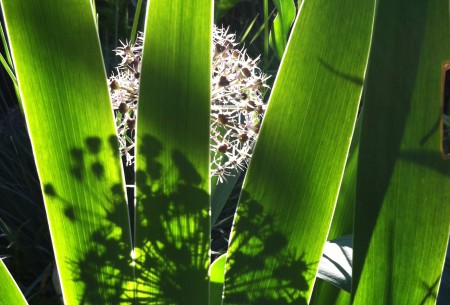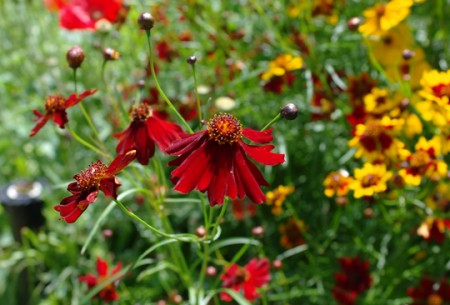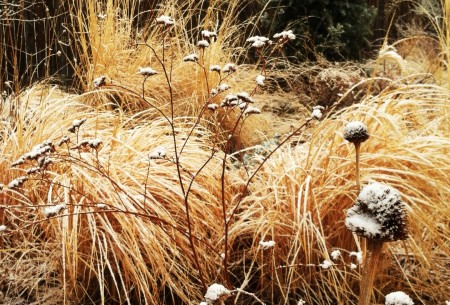We regard the garden an infrastructure that invites and renders the dynamic play of light. Plants and plant combinations should be positioned with such effects always in mind. Such performances as silhouette, translucency, glow, sparkle, and shadow are main components of site theatrics. More so than any other factor, sunlight levels profoundly dictate plant selection. We carefully consider the spectrum of deep shade to full sun and seek both continuity and surprise in the dynamic margins.
Principles of sustainability, applied to the making and tending of ground, are necessary and welcome. Equally important to us are the sensory enhancements that accompany the integration of native processes. The spectacle of nature unfolding on its own terms initiates an emotional response that grows into affection for land and the wonder in its complexity. We hope that our enthusiasm for process and its stewardship inspires our clients to heightened levels of ecological awareness and appreciation.
Color is probably the attribute of gardens that is most familiar to people. In fact, striking flower colors and combinations often seem necessary for a site to be accepted as a "garden". Using dryland plants presents some challenges in this respect; achieving convincing four-season spectacle requires experience with all stages of plant growth, maximizing the ornamental potential of the materials available to us on any given project. The color of early leaves, emergent blooms, seedheads, and other transient, subtle phenomena are frequently overlooked in the design process but are so very enjoyable to create and witness.
The branching structures of sturdy plants become a scaffold as the garden transitions from summer to fall to winter. Leaves and litter drop and drift, catching on the bodies of other plants, creating unusual combinations and making prominent some details that might otherwise be overlooked.
When frost and snow arrive, even more subtle dimensions unfold. Outlines are emphasized, and once the storm clears, the upright forms project shadows onto a freshly rendered sheet of white.





